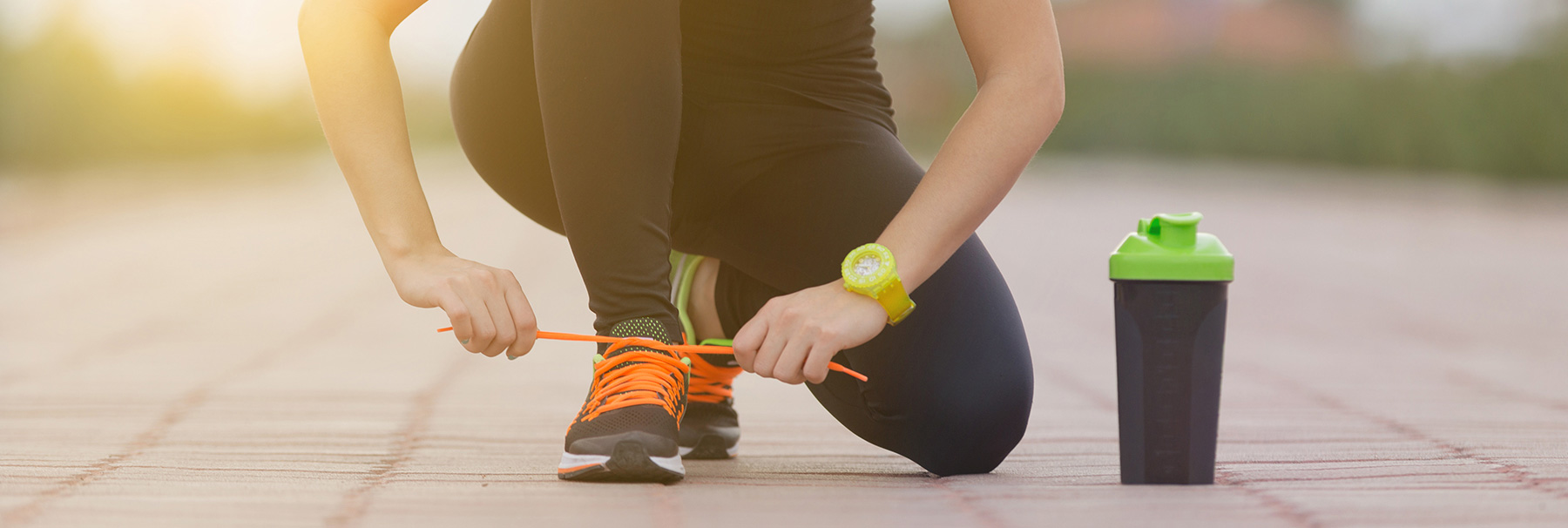Exercise Nutrition: Here’s What and When to Eat

You know your body needs fuel to lift weights, go for a run, or practice yoga. You also have nutritional needs after you exercise to encourage muscle growth and recovery. So, what should you eat and when?
Before and after moderate- to high-intensity exercise, your body needs five basic nutritional elements:
- fluids
- protein
- carbohydrates
- fats
- vitamins / minerals
Your body’s ideal nutrient levels depend on several factors. They include your sex, age, and weight; the intensity of your exercise; your goals (weight loss, strength training, or increasing endurance); and how much physical activity you get the rest of the day when you’re not exercising.
Before you exercise
“Consuming the right protein and carbs before exercise has more impact on your performance and body composition than anything you do after a workout,” says Jason Stevenson, M.S., a registered dietitian/nutritionist and board-certified sports dietitian with the University of Miami Health System. “During exercise, carbohydrate ingestion rarely replaces the loses you experience, making pre-exercise carbohydrate loading that much more important.”
After you work out
The main goal of post-workout meals is to refresh the entire body. This includes glycogen levels, amino pools, and fluids. Many athletes think they need to consume carbs and protein within an hour after every workout. “But, your overall consumption of protein and carbohydrates between workouts is more influential to recovery and performance than any post-workout ‘window of opportunity,'” Stevenson says.
“I’m not telling you to forgo your post-exercise supplement or meal because you have an all-day window of opportunity to recover,” he says. “But, the real focus should be on rehydration.”
Stay hydrated
“Fluid is the most important component of your nutrition plan,” Stevenson says. Both carbs and protein rely on fluids. However, plain water doesn’t always cut it. “By incorporating both carbohydrates and electrolytes, your body’s absorption capacity improves.”
There is a lot of hype about the hydrating properties of pure coconut water. Stevenson warns that it may contain potentially dangerous sodium and potassium levels for healthy athletes doing intense physical training.
Instead, try low-sugar energy drinks with little or no caffeine. Iced green tea and matcha tea have less caffeine than coffee while providing antioxidants. Reduced-fat chocolate milk is a surprisingly good source of protein and carbohydrates plus potassium, calcium, and Vitamin D.
Smoothies, juices, and protein shakes are another delicious way to stay hydrated.
Try these recipes for protein, carb, and nutrient-dense beverages.
- kale / spinach + carrots + blueberries + banana + coconut water
- banana + nut butter + apple + raw cacao + cinnamon + milk
- kale / spinach + dark cherries + banana + raw cacao + protein powder + milk
- cooked sweet potato + cinnamon + cardamom + protein powder + milk
- apple + spinach + pineapple + ginger + lime juice + protein powder + ice
- apple + banana + blueberries / strawberries + nut butter + Greek yogurt + milk
- banana + pineapple + ginger + turmeric + protein powder + milk
Why do I need protein?
By sparing carbohydrate availability, protein helps replenish your body’s energy storage (called glycogen). “Since protein is involved in tissue repair, consuming protein after a workout can assist with overall recovery,” Stevenson says.
Lean protein is what you want before or after a workout because fats can slow the body’s nutrient absorption.
- eggs
- Greek yogurt
- low fat cottage cheese
- reduced fat dairy milk
- chicken
- turkey
- salmon
- lean red meats
- tofu
- nuts, nut butters
- edamame (soy beans)
- seeds (flax, chia, pumpkin, sesame)
- unsweetened non-dairy milks (pea protein, cashew, soy)
Think outside the box when it comes to carbs.
Carbohydrates can provide much-needed energy before, during, and after exercise. “And, carbs reduce protein breakdown,” Stevenson says.
Avoid processed products like white bread and enriched flour pasta. Instead, enjoy vegetables, fruits, and whole grains.
These have more fiber to help fill you up and avoid blood sugar spikes and crashes.
- sweet potato
- beans, lentils
- quinoa
- cauliflower
- tomatoes
- oat milk
- banana
- zucchini
- carrot
- sprouted grain bread (no added sugar)
- whole grains (brown rice, farro, barley, whole rolled oats, buckwheat)
- pasta made from whole grain flours (lentils, chickpeas, brown rice, edamame)
Fats aren’t always bad
“Fat provides a good source of fuel for the muscles called intramuscular triglycerides,” Stevenson says.
“But, I recommend a lower fat intake immediately before, during, and post-exercise because consuming fat with other nutrients may delay digestion of protein and carbohydrates.” Include heart-healthy fats in your meals and snacks throughout the remainder of the day.
- avocados
- coconut
- nuts and nut butters
- flax seeds
- chia seeds
- salmon
Vitamins, minerals, and other nutrients are also needed to support recovery, muscle growth, and cell renewal.
Look for foods packed with amino acids, iron, fiber, magnesium, calcium, and antioxidants.
- darky leafy greens (spinach, kale, arugula, chard)
- blueberries
- garlic
- beets
- walnuts
- flax seeds
- oranges
- broccoli
- ginger
- apple
No matter how you choose to fuel your body, keep in mind that your nutrition before exercise and throughout the day has more impact than what you consume immediately following a workout.
Stay hydrated before, during, and after exercise to ensure your body absorbs the full benefits of heart-healthy carbohydrates, proteins, and vitamins.
Dana Kantrowitz is a contributing writer for UMiami Health News.
Tags: Jason Stevenson, sports nutrition
